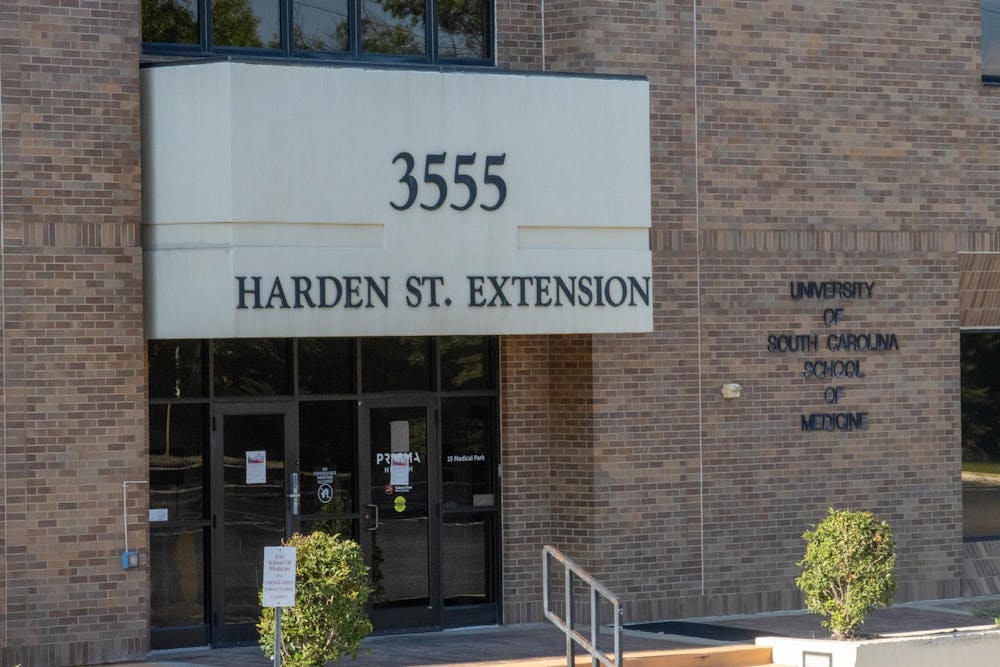For the first time in its history, the University of South Carolina has received more than $300 million in sponsored research awards for 2024.
The influx of funding represents a 27% increase from the previous year and the biggest increase overall in external awards for USC. The $309 million comes from a variety of sources, such as the Department of Defense, National Science Foundation and Department of Health and Human Services.
The Molinaroli College of Engineering received the most funding with $69.3 million, a 67% increase from the previous year. The College of Arts and Sciences, College of Pharmacy, Arnold School of Public Health and the College of Nursing also had substantial gains.
"These awards reflect the quality and hard work of our faculty and their great strides in critical areas such as health, cutting edge technologies and energy innovation," university President Michael Amiridis said in his State of the University Address on Sept. 11.

The sponsored awards — money that comes from outside the university — will be used for a variety of projects. The Molinaroli College of Engineering and Computing is developing fully electric ships for the Navy and researching batteries, while health science projects include Alzheimer's research and focus on aging.
Part of the health science funding will help USC's Brain Health Network, which was developed in 2023 to help South Carolinians experiencing symptoms of Alzheimer's. Initiatives like these put more focus on South Carolina centered research, said Vice President of Research Julius Fridkrissin.
More university support for faculty has contributed to the jump in funding, Fridriksson said.
"We have really just ramped up the amount of grants we submit," Fridriksson said. "And we do a lot to support our faculty, because they submit almost all of the grants that we get. We do a lot to train them to get better at writing grants, to get proposals, and a lot of that is just hitting."
In addition to training programs for grant writing, Fridkrissin's office is focused on helping faculty become better equipped for the research process.
"You always think about it like coaching a team, what are the best ways to coach people up so they can win the game?" Fridriksson said. "We've tried to make it easier for faculty to do their research by making the university more efficient ... then they can really spend most of their time in the lab and writing grants and writing scientific articles."
One example of this is through improving hiring, Fridkrissin said. While the money helps fund the projects, most of it is spent on hiring staff, said Hossein Haj-Hariri, the dean of the Molinaroli College of Engineering and Computing.
"We buy a lot of equipment with this money, but a majority of money is personnel time," Haj-Hariri said. "That means student we support, a lot of grad students, a lot of post docs and some of faculty time. Faculty are paid on a nine month basis, so their summer support typically comes from these research projects."
Hiring has created a strength for engineering, Haj-Hariri said.
While some schools choose to focus on a variety of different research components, the College of Engineering has continued to develop in areas where there were already strengths.
"We just have hired some amazing people at the end of the day," Haj-Hariri said. "We've hired in focused areas. We knew we were strong in energy, we continue to build on it. We knew we are strong in materials, we continue to build on it ."
While the money signals that faculty are becoming more productive in their research pursuits, the main focus lies in other areas.
"The ultimate thing we are solving for is impact," Fridriksson said. "So what we want is for our research to make a difference in people's lives."
Money given to the College of Nursing will be used to address South Carolina's nursing shortage. The College of Arts and Sciences will use some of its $53.8 million to benefit South Carolina's marine and estuary systems.
"We're a state university, right?" Fridkrissin said. "So we want to make sure to not just educate the students of this state, we want to make sure that we're trying to solve the problems of this state."

